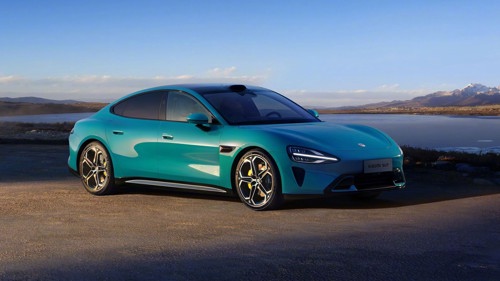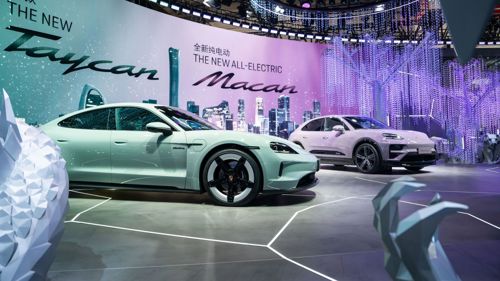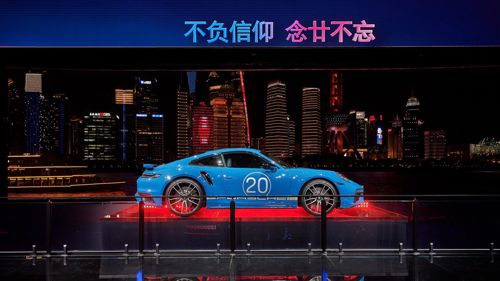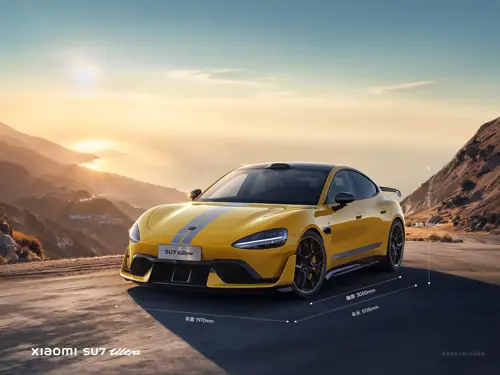Porsche, long considered a symbol of premium performance in China, is losing its edge.
Chinese automakers have shifted the definition of luxury, blending high performance with advanced artificial intelligence (AI) and affordability.
The result? A new wave of local electric vehicles (EVs) is threatening the dominance of established German brands.
Among them, Xiaomi’s SU7 has emerged as a key challenger.

Often compared to the Porsche Taycan, the SU7 matches its German counterpart in power and braking while offering cutting-edge smart features, such as AI-assisted parking and personalised in-car experiences.
Crucially, it comes at half the price, making it an attractive option for Chinese buyers.
As reported by The New York Times, Porsche's struggles in China highlight an increasingly fluid premium market, where Chinese EV makers are rapidly outpacing traditional luxury brands in both innovation and affordability.
Buyers look elsewhere

Porsche's struggles in China are clear.
The company reported a 28% drop in Chinese deliveries in 2024, marking a major setback in a market that has historically driven its global growth.
While Porsche’s sales climbed in other regions, the decline in China dragged down its worldwide deliveries by 3%.
“The German, but also the American and the Japanese-Korean, established Western manufacturers have greatly underestimated the development dynamics of the Chinese manufacturers,” Stefan Bratzel told The New York Times.
Bratzel, director of the Center for Automotive Management in Germany, noted that Chinese automakers have rapidly evolved in EV and software development, areas where European brands have been slower to adapt.
Under pressure

Porsche is not alone in facing challenges.
Chinese consumers now view domestic brands as legitimate premium choices, forcing legacy automakers to rethink their approach.
Gary Ng, an economist at Natixis Corporate & Investment Banking, noted, “Chinese consumers right now are ready to accept that Chinese companies can produce cars that are considered as premium to them.”
In response to its struggles, Porsche recently announced leadership changes, parting ways with its finance chief and a top sales executive.
Additionally, the company plans to cut up to 1900 jobs in Germany as it grapples with shifting global demand.
Sales of its Taycan EV fell nearly 50% last year, with the Panamera hybrid also underperforming, largely due to weak interest from Chinese buyers.
Global implications

Porsche’s troubles in China are part of a broader challenge facing traditional car manufacturers.
Chinese EV giants, such as BYD and Xpeng, have not only dominated their home market but are expanding aggressively into Europe and other global markets.
In January 2025, BYD outsold Tesla in China and ramped up exports, signalling a shift that is putting European brands under pressure.
Mercedes-Benz, for example, has responded by introducing a mix of new combustion engine and battery-electric models, trying to balance demand while transitioning to an EV future.
However, the rapid growth of Chinese automakers is forcing legacy brands to rethink their long-term strategies, with some struggling to keep pace with innovation and affordability.
The impact could also reach New Zealand, where competition from Chinese EV brands is increasing. If Porsche and other European automakers fail to innovate, they may lose ground not just in China but in other key markets, including here.
“As German carmakers, we have to be at least as much or more innovative as we are more expensive,” Bratzel warned. “And that has gradually been lost, because Chinese carmakers are now just as innovative, and some are even more innovative.”
The rise of Xiaomi's SU7

For many Chinese consumers, the SU7 is the future.
Buyers like Seaky He, a social media content creator in Changsha, have abandoned German brands in favour of Xiaomi’s smart, connected vehicles. “In choosing my new car, I didn’t even consider buying another German vehicle,” He told The New York Times.
Xiaomi has been aggressively testing the SU7 Ultra, even setting a record at Germany’s Nurburgring racetrack in October, beating the Taycan Turbo GT’s lap time by 20 seconds. It most recently set a new lap record at the Shanghai International Circuit.
While Porsche fans have questioned the validity of the comparison, the message is clear - China’s EV makers are serious competitors in performance and technology.
What’s next for Porsche?

Porsche faces mounting challenges, not just in China but globally.
Potential US tariffs on European imports could further disrupt its business, as the brand relies solely on German-made exports for the American market.
Meanwhile, the rapid evolution of China’s EV sector highlights the need for Porsche and other German automakers to accelerate their software and electrification strategies.
More broadly, the struggles of European brands like Porsche highlight a growing reality - legacy carmakers must evolve faster or risk becoming obsolete.
As Chinese EV makers continue to expand beyond their home market, their influence on pricing, innovation and consumer expectations is already reshaping the global car industry.
If Porsche wants to retain its premium status in China and beyond, it must adapt quickly - before the market leaves it behind.





